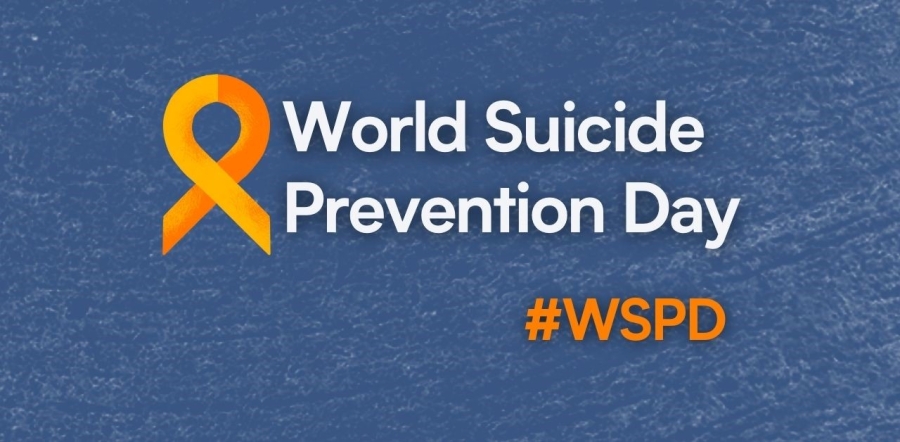One of our mental health doctors is offering advice on how to approach conversations with people who may be in crisis ahead of World Suicide Prevention Day on Sunday (10 September).
Dr Raphael Ogbolu is issuing the advice as the lead clinician for suicide prevention for the Trust.
The guidance comes in line with this year’s theme, ‘creating hope through action’, urging everyone to think about what they can do to make it easier for a friend, family member or a colleague to talk about their feelings and worries.
Dr Ogbolu said:
“Lancashire and South Cumbria has some of the highest suicide rates nationally, which is why it’s important to equip people with some simple advice on how to approach the topic.
We can all play a part in helping those we think are in an extreme mental health crisis and that can begin with starting a conversation with a person you are concerned about. I appreciate this isn’t always easy but by talking, and saying things in a particular way, you may help the person open up and feel like they can share how they feel.
Having that conversation is really important because many people who are feeling suicidal are likely to give some type of message, whether through talking or behaviour, about their thoughts. Many also go through the ambivalence of ‘should I, or should I not’, and your discussion may give the person hope; feeling heard has a powerful effect.
What is also important is recognising that you can be part of the journey and by understanding what the person is going through, you can signpost them on to services, charities and professionals who are there to help them deal with their thoughts and hopefully, aid them in their recovery.”
Dr Ogbolu recommends the following tips:
- Start the conversation and ask open questions where people have to say more than yes or no. A good example is “How are you feeling?” or “What has been on your mind?”
- Listen, give the person time, stay calm and be patient. You might feel anxious to hear their answers, but allow them the space and time they need to open up.
- Take them seriously and have some resources to hand; it can be something as simple as a helpline number or a website link. If you are concerned that someone has a plan to imminently harm themselves, you should call 999.
- Try not to judge, even if you are shocked, upset or scared, or indeed struggling to understand what is making them feel suicidal. They may have taken a big step by telling you.
- Don't skirt around the topic or make assumptions. There is still a taboo around talking about suicide but it is better to ask direct questions about it like ‘Are you having suicidal thoughts?’ or 'Have you felt like you want to end your life?' as they can help someone talk about how they are feeling. Also, do not assume they won’t carry something out because they haven’t previously.
The advice follows 161 people in Lancashire and South Cumbria suspected of losing their lives to suicide in 2022, with 24 people up until 3 June this year.
Dr Ogbulu continued:
“While we have seen a slight decrease in the number of suspected cases of suicide over the past four to five years, which we think is because of mental health support and people being encouraged to talk, the number of people losing their lives to it is still too high. It is still a societal issue which leaves behind bereaved families and loved ones suffering immense devastation, grief and guilt.
Starting conversations is important but so also is knowing where you can go if you feel yourself in a dark place, struggling to cope and thinking of self-harm.
Here in Lancashire and South Cumbria, you can call our Crisis Line 24/7 on 0800 953 0110. It is staffed by trained mental health professionals who are able to provide assessment and referrals to appropriate services.”
Training
If you would like to access formal training in how to hold conversations with those who may be at risk of suicidal thoughts you can become an Orange Button holder through Lancashire Mind. This will help you listen to and support those in need and once you have completed the training, you can wear an orange button badge to signal to those around you that you are available to help.
It does not train button holders to counsel people but empowers them to intervene when someone may be having suicidal thoughts, signposting to relevant services. Book the training online
You can also complete free online Zero Suicide Alliance training. It’s quick and easy, with a five minute or 20 minute package to choose from.
In addition, colleagues from the Community Asset Development Team at Lancashire and South Cumbria NHS Foundation Trust have teamed up with Beside You in Bereavement to host an online event in recognition of Suicide Prevention Day. It will take place on Thursday 7 September between 12 to 1:30pm, showing a short film outlining the experience of a counsellor called Gillian, the story of a woman who lost her husband to suicide and the impact she and her children encountered, as well as a question and answer session.
Sign up to attend.
Further support
Free and confidential help for anyone affected by suicide is available in Lancashire through Amparo and in Cumbria through Every Life Matters.
National charity Mind also offer a wealth of advice on mental health topics and how to support those who are suffering.
See Dr Ogbolu's tips below and in the video at the bottom of this page.

